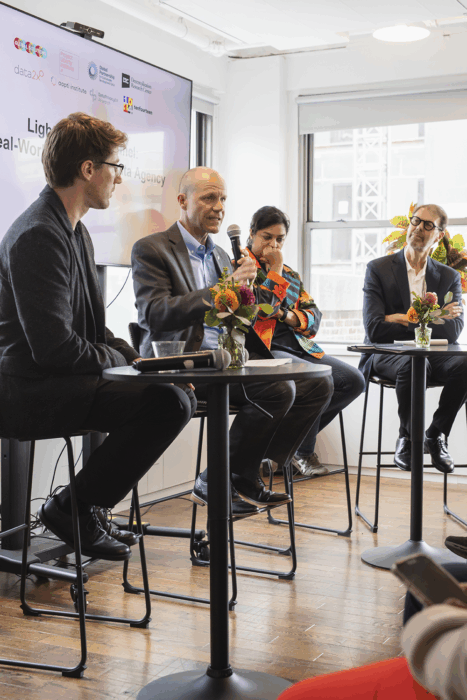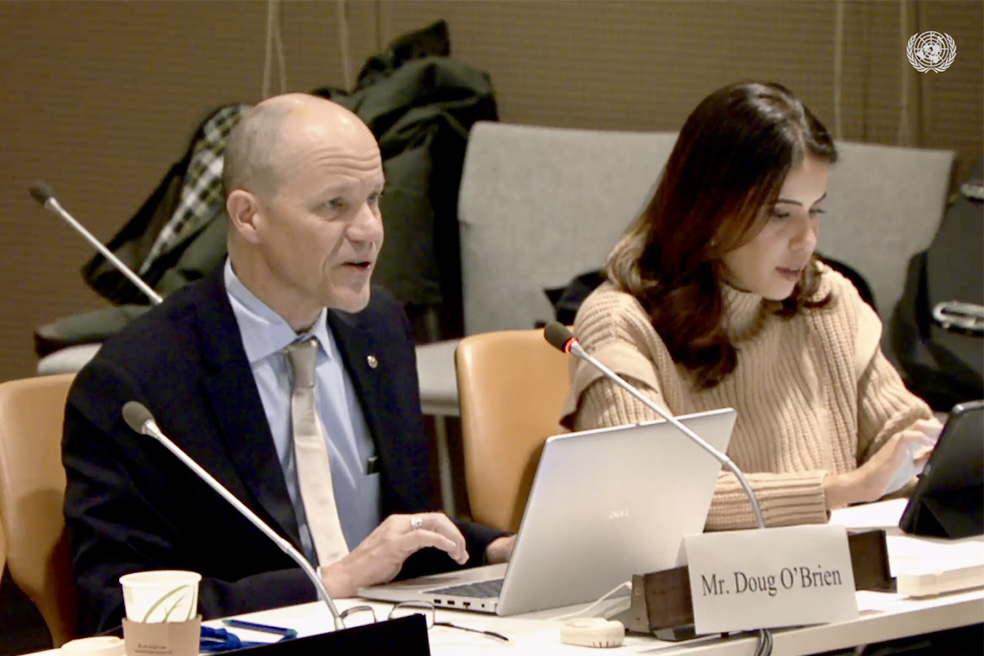
Recently, I had the privilege of participating in the Lightning Talks Panel: Real Models for Data Agency. The panel was part of a focused day of conversations in New York City led by Project Liberty Institute and the Global Solutions Initiative to advance a fair data economy. This convening brought together practitioners, researchers and leaders who are reimagining how communities can exercise true ownership and control over their data. It was an energizing session—fast-paced, idea-rich, and ultimately focused on what it takes to move from theory to practice.
Elevating the Conversation on Data Agency
The concept of data agency—the ability of individuals and communities to not just access, but actively shape how their data is collected, governed and used—is gaining momentum globally. During the panel, I shared how cooperatives, with their democratic ownership structures and member-centric values, are uniquely positioned to lead as an alternative to extractive data practices. At NCBA, we know how co-ops across sectors—from agriculture to finance to utilities —can transform markets by centering accountability, transparency and shared benefit.
Cooperatives at Scale
I had the opportunity to highlight that cooperatives are not a niche experiment—they have already scaled in the U.S. Today, one in three people are members of a cooperative, including more than 115 million members of credit unions and over 40 million members of electric cooperatives. These institutions are already using data every day to deliver value for their members and communities, whether by improving services, lowering costs, or responding to emerging needs.
The real opportunity now is to lean into the cooperative model so that more people can be empowered by their data—as opposed to being exploited by opaque or extractive systems. In many ways, cooperatives have already laid the groundwork. The next step is to extend these values of ownership, control and benefit-sharing into the digital realm.
Insights from the Lightning Talks
The session’s rapid-fire format allowed diverse perspectives to surface—from grassroots data collectives to global institutions exploring new governance frameworks. What stood out most was the convergence of ideas: whether framed through indigenous data sovereignty, open-source infrastructures or cooperative governance, there was a shared recognition that data cannot remain the domain of a few powerful actors.
 It was exciting to see so many thought leaders in this field already recognize cooperatives as a critical strategy in advancing data democracy. This validation reinforces what we in the cooperative community already know: when people come together through cooperative structures, they can ensure that data—like other resources—are used in a way that benefit members and their communities.
It was exciting to see so many thought leaders in this field already recognize cooperatives as a critical strategy in advancing data democracy. This validation reinforces what we in the cooperative community already know: when people come together through cooperative structures, they can ensure that data—like other resources—are used in a way that benefit members and their communities.
Looking Forward
As we left the session, one point was clear: this is only the beginning. Real models for data agency are not abstract concepts—they are already being built, tested and refined by innovators around the world. Our challenge now is to connect these efforts, scale what works and ensure that everyone has a seat at this data table.
For me, the panel reinforced why the cooperative community must lean into this space. Data is fast becoming the defining asset of the 21st century. If we want to capture the opportunity inherent in the co-op business model, we need to show how our principles apply not just to physical goods and financial capital, but to digital resources as well.
The cooperative community has an opportunity—and a responsibility—to lead in shaping a future where data serves people, not the other way around.
Learn more about how co-ops can build a fair data economy


